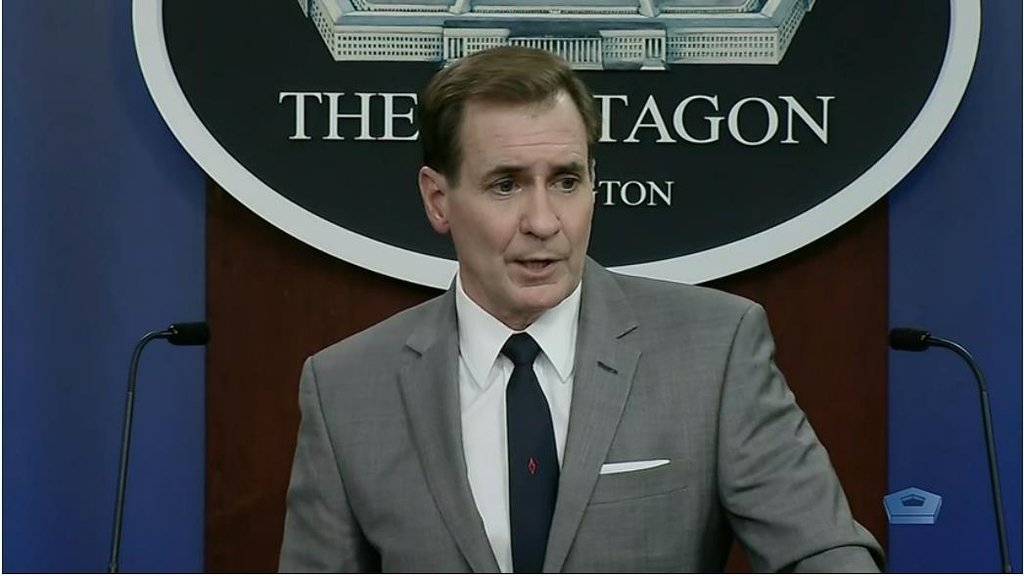 |
The captured image from the website of the US Defense Department shows spokesman John Kirby answering questions in a press briefing at the Pentagon on Tuesday. (US Defense Department) |
WASHINGTON -- The United States opposes North Korea taking any actions that could raise tension on the Korean Peninsula, the spokesman for the US Department of Defense said Wednesday, amid reports that the North may be preparing to stage military provocations.
John Kirby also called on the North to denuclearize.
"We want to see North Korea denuclearize. We want to see stability and security on the peninsula and denuclearization is a key part of that," the Pentagon spokesman said at a press briefing.
"Obviously, we call on Pyongyang not to do things that would make things less stable on the peninsula," he added.
His remarks came after sources in Seoul said South Korea is closely monitoring possible signs of provocation by the North, noting Pyongyang is deploying multiple rocket launchers on a western island just north of the Northern Limit Line, the de facto maritime border between the divided Koreas.
Kirby said he was not aware of such reports and that he would not discuss intelligence reports from the podium.
North Korea launched two cruise missiles off its west coast on Sunday.
While senior administration officials here said the missile launches did not violate any UN Security Council resolution, many believe they could be the first of many to follow.
Pyongyang has not responded to US overtures that began in mid-February, according to US officials, while its first vice foreign minister says the North will continue to ignore US entreaties until Washington gives up its hostile policy toward Pyongyang.
The Biden administration has been undergoing a comprehensive review of its North Korea policy, which it said will offer a new approach to dealing with the North.
A senior US official said on Tuesday that the North Korea policy review is now in its final stages and that National Security Adviser Jake Sullivan will host his South Korean and Japanese counterparts in Washington next week to explain and discuss the outcome of the review. (Yonhap)





![[Herald Interview] 'Trump will use tariffs as first line of defense for American manufacturing'](http://res.heraldm.com/phpwas/restmb_idxmake.php?idx=644&simg=/content/image/2024/11/26/20241126050017_0.jpg)

![[Herald Review] 'Gangnam B-Side' combines social realism with masterful suspense, performance](http://res.heraldm.com/phpwas/restmb_idxmake.php?idx=644&simg=/content/image/2024/11/25/20241125050072_0.jpg)
![[Health and care] Getting cancer young: Why cancer isn’t just an older person’s battle](http://res.heraldm.com/phpwas/restmb_idxmake.php?idx=644&simg=/content/image/2024/11/26/20241126050043_0.jpg)